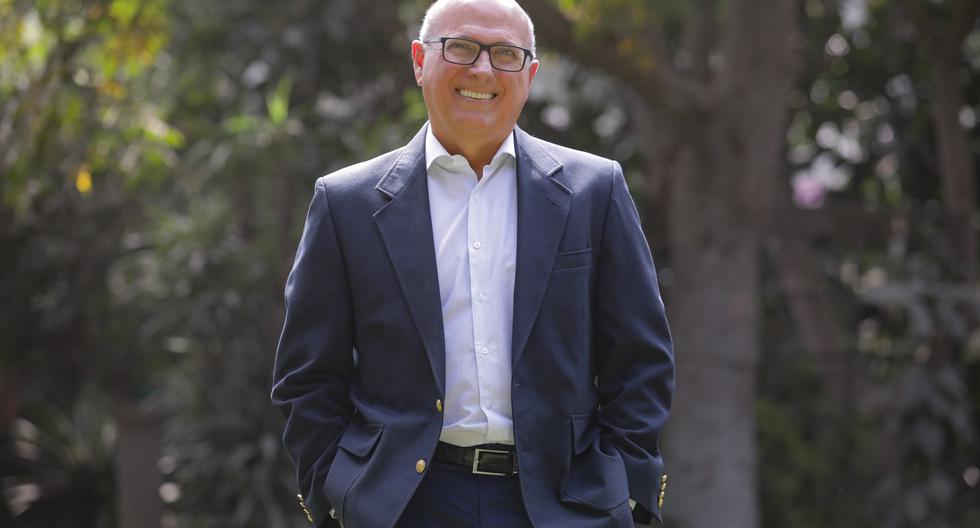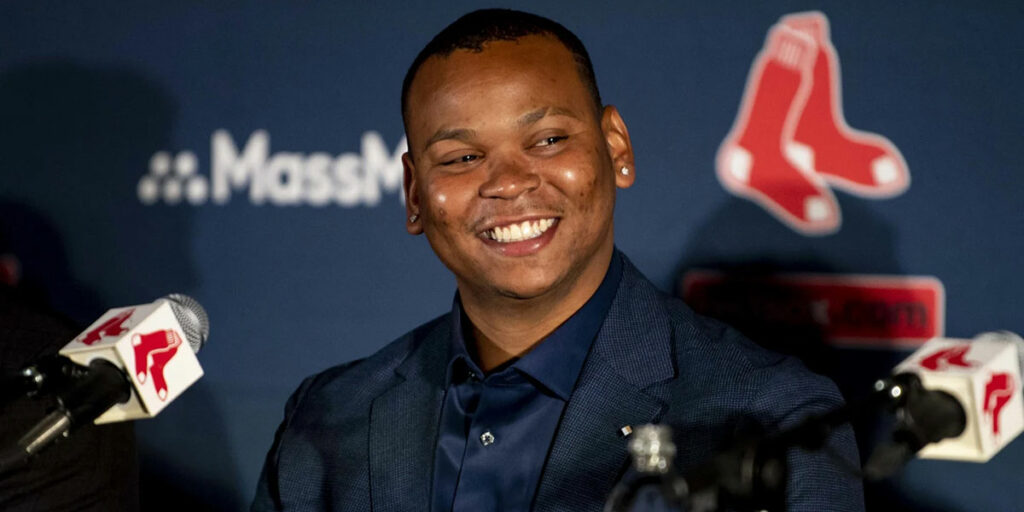His father was the brother of Violeta Correa, the wife of the former president Fernando Belaunde. She always lived in an environment of constant political debate. Her father talked with Belaunde, they were close. And the paternal grandfather was president of the Christian Democrats, who signed the alliance for the 1963 elections, which the former president won. “They influenced my love for country and integrity,” he tells me about one of his family roots.
His father being an architect, he consolidated his training with a Master’s Degree in Industrial Management in the United States. In 1992 he left for Argentina for a job offer for Procter & Gamble. His four children were born there. But the time came, a decade later, to return, or not. Brazil was an option, even Venezuela. “But I told them that I didn’t want to go to Venezuela because Chávez was already there and I had a presentiment of what was coming,” he confesses and affirms that, finally, he returned because he wanted his children to meet their grandparents and grow up in Peru. “That they connect with their country,” he emphasizes. Juan Ferdinand Correa lead the movement Peruvians for Peruvians and starting this week he will write, every Saturday, an opinion column in Peru21.
The maternal grandfather, Malachowski, was Polish. He arrived in Peru in 1911. He was an architect and the State hired him to build public works. He completed the Government Palace, the Legislative Palace, the facade of the Archbishop’s Palace, the interior architecture of the Municipal Palace. The other family root.
LOOK: Miguel Montalván, tiktoker: “We avoid the word success and disguise the word failure”
-Peruvians for Peruvians, in the midst of the complex situation, it can be almost a call to reflection, to recognize ourselves among Peruvians.
Although anemia is the first project that we are promoting, what we are looking for is to get closer to each other. It is about taking initiatives with the aim of getting closer.
-How far apart are we?
There is a very strong feeling in the majority of Peruvians, especially in the middle and low economic levels, of loneliness, of abandonment by the State that does not provide services, that does not fulfill its promises, that does not provide quality of life; and rather, it is difficult for them on a day-to-day basis through taxes, rules. That is the main reason why we have 80% labor informality and great informality in the economy. At the same time, the majority of Peruvians feel that private companies are indolent towards people’s problems, that they are only interested in their own benefit; People believe that companies do not pay taxes and that many times they collude with the authorities to obtain individual advantages. On the other hand, Peruvians are aware that they pay taxes, we all have to recognize that the majority of Peruvians do pay taxes and do so through the General Sales Tax (IGV). The IGV represents 50% of the income of the Peruvian State. So, Peruvians are convinced that they pay taxes and receive nothing or very little, and that the formality is to pay more taxes, more rules.
-This dissatisfaction is also attributed to the economic model and even to the current Constitution.
There is no doubt that the non-compliance of the State, the feeling of abandonment, the poor public function that we see in many authorities requires a revision of some components of the Constitution. We are in a situation of need for change. For example, there should be an anti-corruption chapter in the Constitution. What I do not agree with is that this is an ideological change. Let’s adjust what we have to adjust; we need different politicians. Corruption is the biggest disaster we have. Paper is not going to change the way people behave.
-That we have better politicians is not something that will happen from one moment to another. How to generate changes from now on?
With actions. That is why we are implementing Peruvians for Peruvians, it is direct action. If we all agree, in 18 months we can halve anemia in the country. Soon we also want to see tuberculosis: Peru is the country with the highest level of drug-resistant tuberculosis in all of the Americas. From the private sector we must also promote works projects for taxes that help solve basic problems. Chinatown in Ica should not go out to protest a change in the Constitution, that they protest because they do not have water or drainage and live in subhuman conditions. Ica has a huge amount of mining canon, we can carry out construction projects for taxes so that they have better living conditions.
LOOK: Fietta Jarque, writer: “We have been stumbling since the beginning of the Republic”
But why isn’t it done?
The private sector approached the previous regional governor to raise it and he did not want to do it.
-There is also the perception that the big company is bad. However, there are projects like Peruvians for Peruvians.
And there is a central theme. I estimate that there are between 10,000 and 20,000 actions of social responsibility for aid. How many do we know? We are only going to be able to change the perception if we understand that we have to go beyond our work of being responsible, of giving formal work; that is not enough anymore. But more and more companies are viewing their presence not only as an investment action but also as having an impact on society.
-Why does he do this?
For the love of my country, nothing more. We have to recognize and appreciate what a wonderful country we have. Most Peruvians feel a deep connection to the country, with its diversity, culture, and history. We have enormous entrepreneurial capacity. We have a wonderful chance to see our country reborn.
SELF-FICHE:
– “I am Juan Fernando Correa Malachowski. My maternal grandfather was Polish, he came to Peru in 1911, he was an architect and the State hired him to do some public works, and he married a Peruvian. I thought about being an architect, but I went for Industrial Engineering”.
– “I studied at the Catholic. From there I did a master’s degree in Administration at Purdue University (USA). I spent 15 years at Procter & Gamble, came to Peru and got a job with Bellsouth, and then they hired me as a general manager at a supermarket chain.”
– “I am also director of ComexPerú, director of Asbanc, director of Confiep. I come from a political family, but I don’t see things in those terms, but in participating in society, not staying comfortable in my apartment, helping others. A rule in my family has always been integrity.”
















